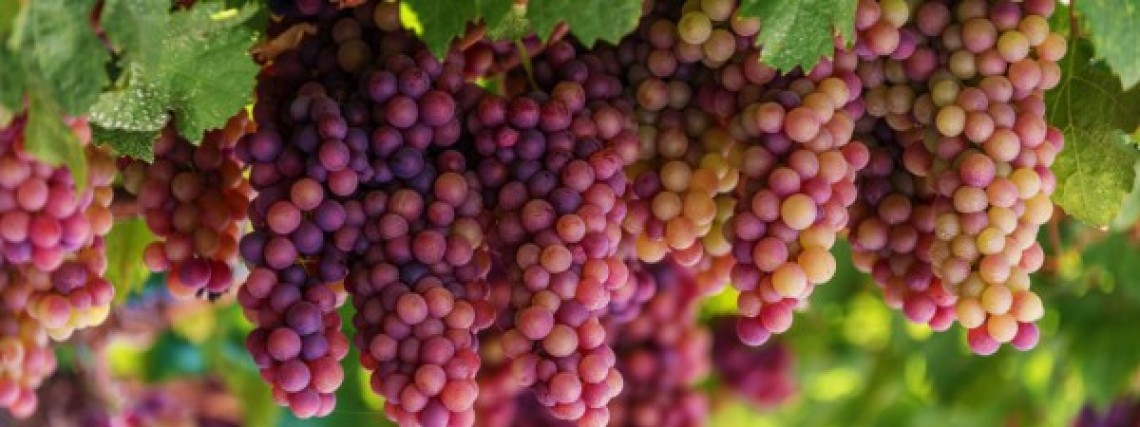15.06.2021
It is a common remark of people that have travelled to Greece, how lovely everything had been during their stay, including the food and wine they had there. What is that makes such simple experiences as eating and drinking so memorable when in Greece?
Surely the environment has an effect on both the product and the experiencing subject. With the understanding that each place has its own character, one will not fail to observe some truly unique elements of Greece’s landscape, which define also its climate and the diversity of life to be found there.
The major part of Greece is on a slope and rather on hard, rocky subsoil, which is perfect for the vines. The ripening period is long, assisted by generous sun exposure, overall pleasant temperatures and large diurnal differences. The altitude, which is a given in many places, the sea breezes and the numerous rivers and underground streams provide the necessary cooling elements that contribute to grapes’ good health. Moreover, Greece’s intriguing landscape, that has been the result of major geological events in the past, creates so many habitat enclaves or terroirs, as more widely known, where life tends to get in the rhythm of a complex, as well as harmonious cycle. The terroir, as many of you already know, is a precious and hardly replicated little “lifeworld”, which, thanks to its complexity and the fine interdependency of its numerous organic and inorganic elements, has shaped over millennia some kind of “life wisdom”, self-preservation and durability.
The same environment “magic” is working not only on the grapes, sealing the quality of the produced wine but also on the taster by preparing the senses to receive and appreciate the tasting experience in the best possible way. Food and in particular wine taste better when and where the senses are being treated well as a whole. Expect to enjoy your Greek wine more whilst sitting by the Greek coast and with the sounds and touch of sea breeze reaching you or dining on the Greek plateaus breathing in the fresh air and smell of the nearby forests and invariably under the warming sunlight of Greece. So notable these place-specific influences are, that history and philosophy scholars have gone as far to assume that even the long leaps in existential thinking, scientific observation and artistic development during the Classical Ages can be attributed to that special light clarity, the diverse terrain and the amazing composition of different elements both geological and climatic, that have pushed the human thought further and evolved the culture.
Speaking of culture, there is aplenty associated with Greece and Greek wine. Greece is where wine drinking evolved from a casual act of consumption to a cultural event and social ritual in the Symposia(). Wine drinking rose to levels of religious worshipping and the first and most popular god of wine (*) throughout history was invented by the Greeks, became known worldwide by the name of Dionysus and transferred to the Romans by the (yet Greek) name of Bacchus. Greeks were the first Cru classifiers, the first Sommeliers and one of the most fervent wine traders of human history. But most importantly, Greeks have never ceased tending vines and making wine over the last 6000 years. Under the Ottoman rule, they were willing to be subjected to taxation, in order to keep going with all things that identified them, including winemaking. This inimitable continuous tradition in winemaking, both in times of complacency as well as adversity, is one of the most fascinating elements of Greek wine. Thanks to that cultural wealth and together with the impressive technological changes that the modern era has introduced, the potential of Greek wine is undeniable.
What is more? People, of course. Greek winemakers are a growing batch of dynamic, passionate, self-driven and forward-thinking craftsmen and craftswomen, who are willing to carry over that huge heritage, experiment further with mostly indigenous grape varieties and wine styles and create characterful unique wines. They deserve your attention!
When trying to replicate a pleasurable wine experience you may have had in Greece, remember to check within a range of wines and account of expert comments, where available, as Greek wine is all about diversity. Challenge yourself beyond the only couple of wine options from Greece widely available at this point and only to satisfy the need of something named Greek being on offer, so you can reach out to that original recipe of euphoria. And with the right wine, you may be able to relive the warming sun, the touch of sea breeze and the sound of summer cicadas that filled in that original drinking experience you had back in Greece.
(*) Gatherings of likely minded, educated citizens with a cultural and philosophical “agenda”.
(**) Other Ancient Greek Wine deities include Methe, the personification of drunkenness, Acratopotes, one of Dionysus companions and drinker of undiluted wine and Amphiktyonis, the goddess of wine and friendship between the nations.
© KudosWines



